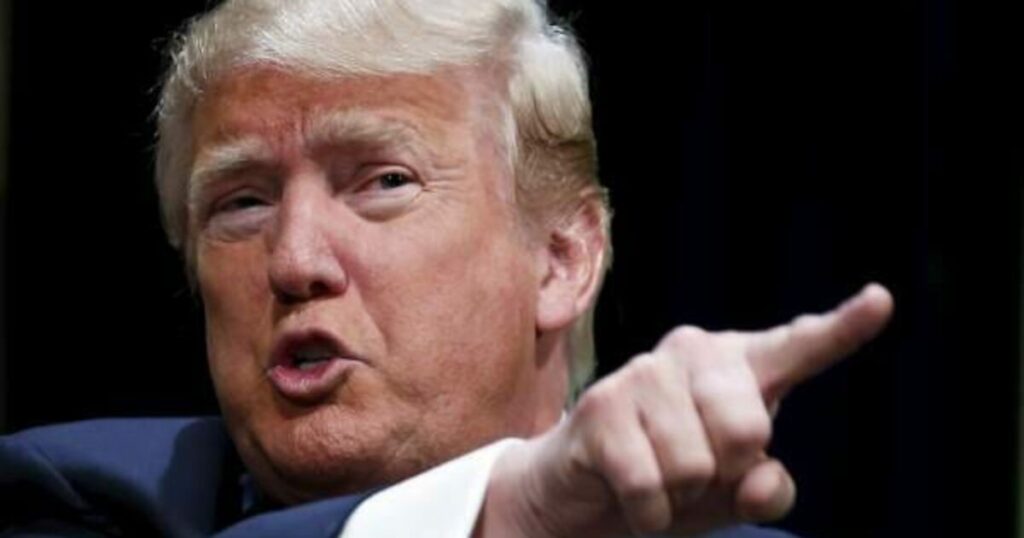On Wednesday afternoon, President Trump expressed his disdain for FBI Director Christopher Wray following Wray’s announcement of his resignation. Wray, who has faced significant criticism for various actions during his tenure, cited his decision as a means to refocus the bureau on its essential mission and to prevent further politicization of the agency. He confirmed his intention to serve until January, aiming to avoid dragging the FBI deeper into partisan conflicts. His resignation comes amidst numerous allegations against him regarding politically motivated actions, including the prosecution of politically conservative individuals and organizations, raising questions about the FBI’s integrity and objectivity under his leadership.
In response, Trump labeled Wray’s resignation as a significant victory for America, suggesting that it would put an end to what he characterized as the “Weaponization” of the FBI, which he believes has strayed from its core mission of upholding the law. Trump highlighted Wray’s alleged misconduct during his directorship, accusing him of orchestrating illegal raids on his home and participating in efforts to impeach him. He described these actions as part of a broader trend of the FBI using its power to threaten and harm innocent citizens, while maintaining that many individuals remain affected by these alleged injustices. Trump’s comments reflect a deep concern over the perceived misuse of governmental authority against political dissenters, suggesting that Wray’s actions might have long-lasting repercussions on the individuals targeted.
Trump took to Truth Social to outline his vision for the FBI post-Wray, endorsing Kash Patel as the most qualified candidate to take over the leadership of the agency. Patel’s appointment is portrayed as a way to restore the principles of law and justice that Trump claims have been eroded under Wray’s tenure. The former president emphasized his ongoing respect for the rank-and-file employees of the FBI, claiming a strong desire among them for substantial changes to be made within the agency. He articulated a broader aspiration from the American public for a “strong, but fair” justice system, indicating that his administration aims to return the FBI to a state where it is perceived as a trustworthy institution dedicated solely to the rule of law.
The public reaction to Wray’s resignation spans a spectrum of opinions, reflecting existing divisions over the FBI’s role in contemporary politics. Supporters of Trump welcomed the news, viewing it as a necessary step toward reforming an agency they believe has lost its way. Conversely, critics argue that the politicization of law enforcement could further undermine trust in federal institutions. The tensions surrounding Wray’s leadership and the allegations of bias within the FBI expose a larger concern regarding the integrity of government operations, especially in politically charged environments. This situation raises the stakes for the potential change in leadership and the subsequent direction the FBI might take under new guidance.
As the timeline for Wray’s departure draws near, discussions around the selection of the next FBI director will likely become a focal point in political discourse. The emphasis on restoring decorum and integrity within the bureau indicates a desire for a return to non-partisan enforcement. With conflicts surrounding political apportionments of justice continuing to escalate, the incoming director will face significant challenges in navigating a landscape marked by public skepticism and demands for accountability. The smooth transition and confirmation of Patel, should he be nominated, will serve as a litmus test for the future direction of the bureau and its perceived legitimacy within society.
In conclusion, Christopher Wray’s resignation signifies a critical moment for the FBI, with Trump and his supporters viewing it as an opportunity for a reinvigorated justice system. The discourse highlights the ongoing struggle between partisan perceptions of law enforcement and the quest for a credible, impartial agency. The implications of this leadership change are manifold, potentially shaping not only the policies and practices of the FBI but also influencing the broader narrative around governmental integrity and public trust in law enforcement bodies across the nation. As the FBI braces for a leadership transition, the spotlight remains on how it will uphold its mandate in a politically fraught environment.

